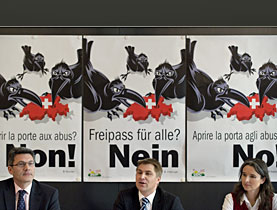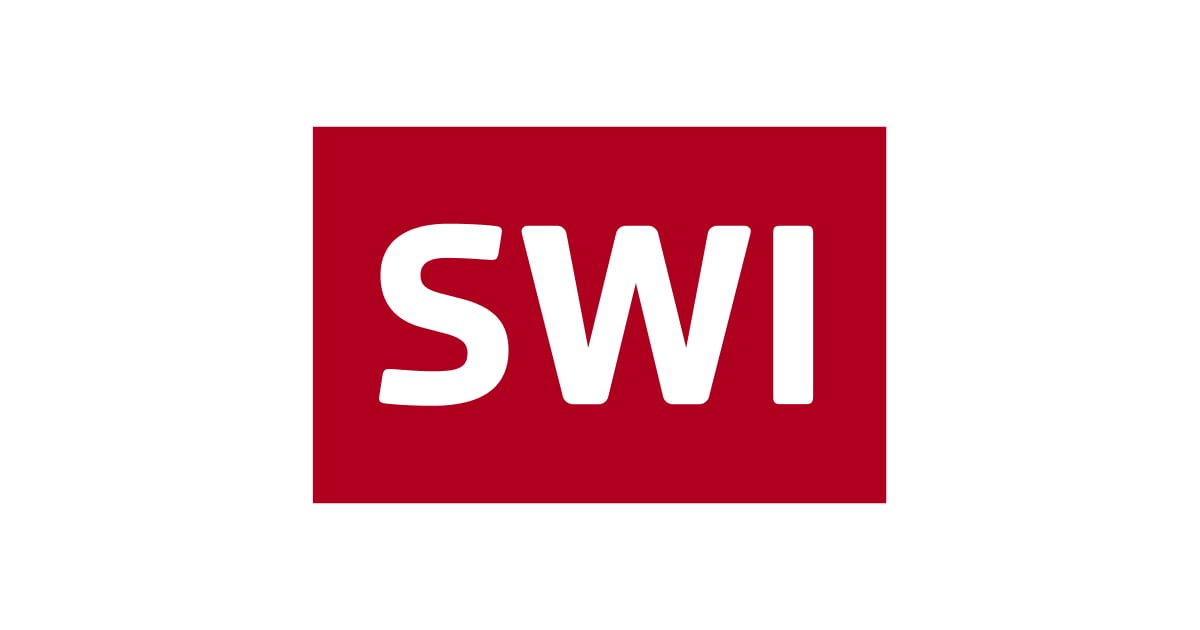Bulgaria plays catch up with confidence

Despite its post-communist aspirations to become the Switzerland of the Balkans, Bulgaria still has many obstacles to overcome on the road to order and prosperity.
Swiss voters will decide on February 8 whether to extend a European Union labour accord to Bulgaria and Romania, allowing workers from these countries easier access to the Swiss jobs market. swissinfo went to Sofia to see where Bulgaria fits into the picture.
This is a country with plenty of room for growth and, spurred on by its membership of the EU, a new confidence that goes with its new place in Europe.
“Our effort to join helped us a lot because it involved a huge process of reforming the whole country – to change our laws to apply different standards than we had before,” Alexei Lazarov of the weekly Bulgarian newspaper Capital told swissinfo.
One impact of EU membership has been greater freedom to emigrate, and an estimated 940,000 Bulgarians currently work abroad.
“The biggest Bulgarian diaspora is in the United States, followed by Spain. Greece and Italy are also popular with Bulgarian emigrants,” Lazarov said.
“However, the first effects of the crisis were already being felt at the end of last year, with workers returning from the construction sector in Spain in particular,” he added.
Switzerland is not on the radar as a migration destination, according to commentators, as it is seen as small, closed and prohibitively expensive. Business links to date between the two countries are also minimal.
Corruption
Any conversation with Bulgarians about the state of their country will inevitably turn to corruption, which is endemic from the ubiquitous traffic policemen to the higher echelons of public administration.
The problem recently cost Bulgaria a blow to its pride when the EU froze a tranche of accession funding, following concerns that the money would not be spent properly.
“It is not a large sum of money but it is a scandal for Bulgaria and puts the government under pressure,” explained Georgy Ganev, economist and director of the Sofia-based think tank Centre for Liberal Strategies.
“The whole political class is sandwiched between the public and Brussels. There is amazing coincidence of opinion between the two on corruption and organised crime. It [the government] is really pressured into change by being poked from both sides.”
Organised crime is still a problem but on a far less dramatic scale than the free-for-all days after the collapse of communism.
“In the 1990s you could easily see the influence of organised crime on the macro economic indicators of the country,” Ganev told swissinfo.
“The budget was in deficit, and you had non performing banks because the crooks were in the banks. That is not the case any more. There are organised crime groups in Bulgaria, some of them internationally linked, but the level is not as high anymore.”
Crisis
Another issue on the minds of Bulgarian voters in the run-up to general elections in June is the global economic crisis and to what extent the country can be protected from its effects.
“There are significant risks facing the economy but there is also this underlying growth potential here because of the catching up process,” Ganev said.
A lot depends on how severe the consumption slump in the EU – Bulgaria’s major export market – turns out to be.
The optimism of students swissinfo met at Sofia University is immune to talk of recession. Many already have job offers in Bulgaria before they finish their courses and expect to holiday abroad rather than move there for work.
One European studies student, Dilyana Pavlova, expressed her determination to come to Switzerland – to see the works of her favour painter, Paul Klee.
Minorities
When it comes to the standing of the country’s two main minority groups, Bulgaria shows the best and worst outcomes.
Despite some difficulties in the communist past, the Turkish minority, at ten per cent of the population, is now very well integrated both socially and economically.
The Turkish political party, Movement for Rights and Freedom, has been a member of the three-party government coalition for the past eight years and will be participating in the June general elections.
The case of the smaller Roma minority is very different. “It is underprivileged, discriminated against heavily and is much worse off than the rest of the population in terms of health, education and employment,” Ganev said.
“On the other hand it is a great opportunity because it is a large chunk of population to be integrated into the labour market…
“But it is a very difficult process for both sides and there is prejudice to overcome, which can also be exploited for political purposes.”
Bulgaria
Population: 7.97 million
GDP in $: 12,400
Growth 2008 (Estimate 2009): 7% (4.5%)
Unemployment (end October 2008): 5.9%
Currency: Lev (pegged to euro)
Capital city: Sofia
Coastline: Black Sea
The Bulgarian government, approaching the end of its four year term, is currently a three-party coalition of the Socialist Party, the National Movement for Stability and Progress (formerly National Movement Simeon II) and the Turkish Movement for Rights and Freedom.
The National Movement for Stability and Progress is the vehicle of Simeon Borisov Sakskoburgottski or Simeon II of Bulgaria, the deposed Tsar of Bulgaria and former prime minister who lived most of his life in Spain. He is the only monarch in history to have become the head of government through democratic elections.
A new ultra-nationalist political party called Ataka (Attack), led by television personality Volen Siderov, secured nine per cent of the popular vote in the 2005 parliamentary elections and made it into parliament as the fourth largest parliamentary group.

In compliance with the JTI standards
More: SWI swissinfo.ch certified by the Journalism Trust Initiative














You can find an overview of ongoing debates with our journalists here . Please join us!
If you want to start a conversation about a topic raised in this article or want to report factual errors, email us at english@swissinfo.ch.